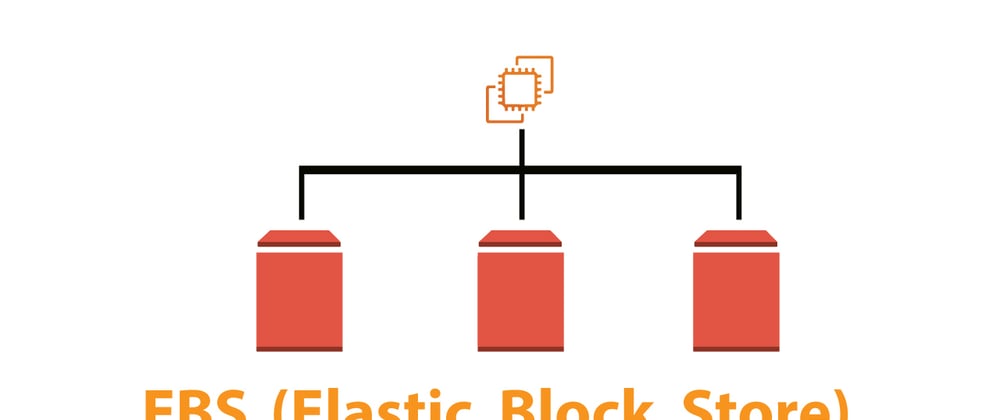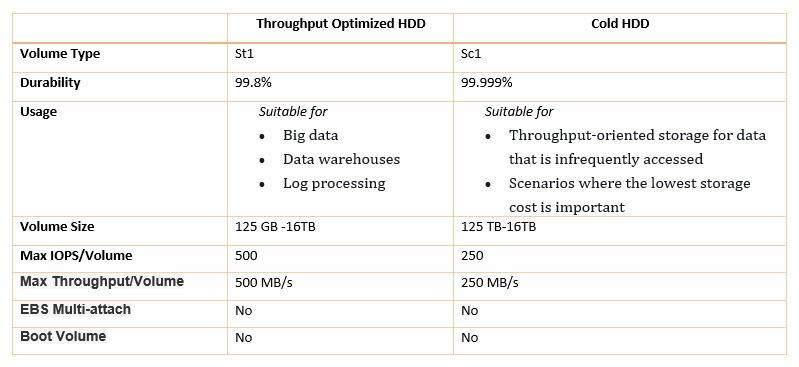What is an EBS Volume?
An EBS (Elastic Block Store) is an easy to use, scalable and high-performance and low latency block storage service that provides persistent block level storage for Amazon EC2 instances.
When dealing with EBS Volumes, customers have the choice to pick and choose between several types of block storages to meet the needs of various types of workloads.
SSD Backed Volumes are best suited for transactional workload like enterprise applications, relational and NoSQL databases, virtual desktops or boot volumes
HDD Backed Volumes on the other hand are best for throughput intensive workloads such as Bigdata applications, log processing, data warehouse applications.
SSD Based Volumes
General Purpose SSD |gp3 and gp2 | These are general purpose SSD volumes that balance price and performance for a wide variety of workloads and are recommended for most workloads.
They provision capacity and performance for your application with a sustained baseline performance of 3,00 IOPS at any volume size.
Thanks to their cost effectiveness, general purpose SSD allow customers to meet the IOPS requirement for most of their application such as MS SQL servers Virtual Desktops and any latency sensitive applications as well as
dev/test environments.
They are also optimized for transactional workloads involving frequent read/write operations with small I/O size, where the dominant performance attribute is IOPS.
- You can increase the size of the IOPS up to 16,000 and the throughput up to 1,000 MB independently
- Baseline of 3,000 IOPS and a throughput of 125 MB/s
- Size of the volume and the IOPS are linked with a max IOPS of 16,000
- Small gp2 volumes that can burst up to 300 IOPS
Provisioned IOPS SSD| These are the highest performance SSD. They are suitable for mission critical or low latency high throughput workloads.
They Provides high performance for mission-critical, low-latency, or high-throughput workloads
- Size of the volume and the IOPS are linked with a max IOPS of 16,000
- Small gp2 volumes that can burst up to 300 IOPS
- Max IOPS of 64,000 for AWS Nitro EC2 instances and up to 32,000 for the other
- IOPS can be increase independently of the storage size
- Io2 has offers more durability and IOPS per BG
HDDD Based Volumes
Throughput Optimized HDD St1 & Cold HDD Sc1 |HDD Backed Volumes on the other hand are best for throughput intensive workloads such as Bigdata applications, log processing, data warehouse applications.










Top comments (0)